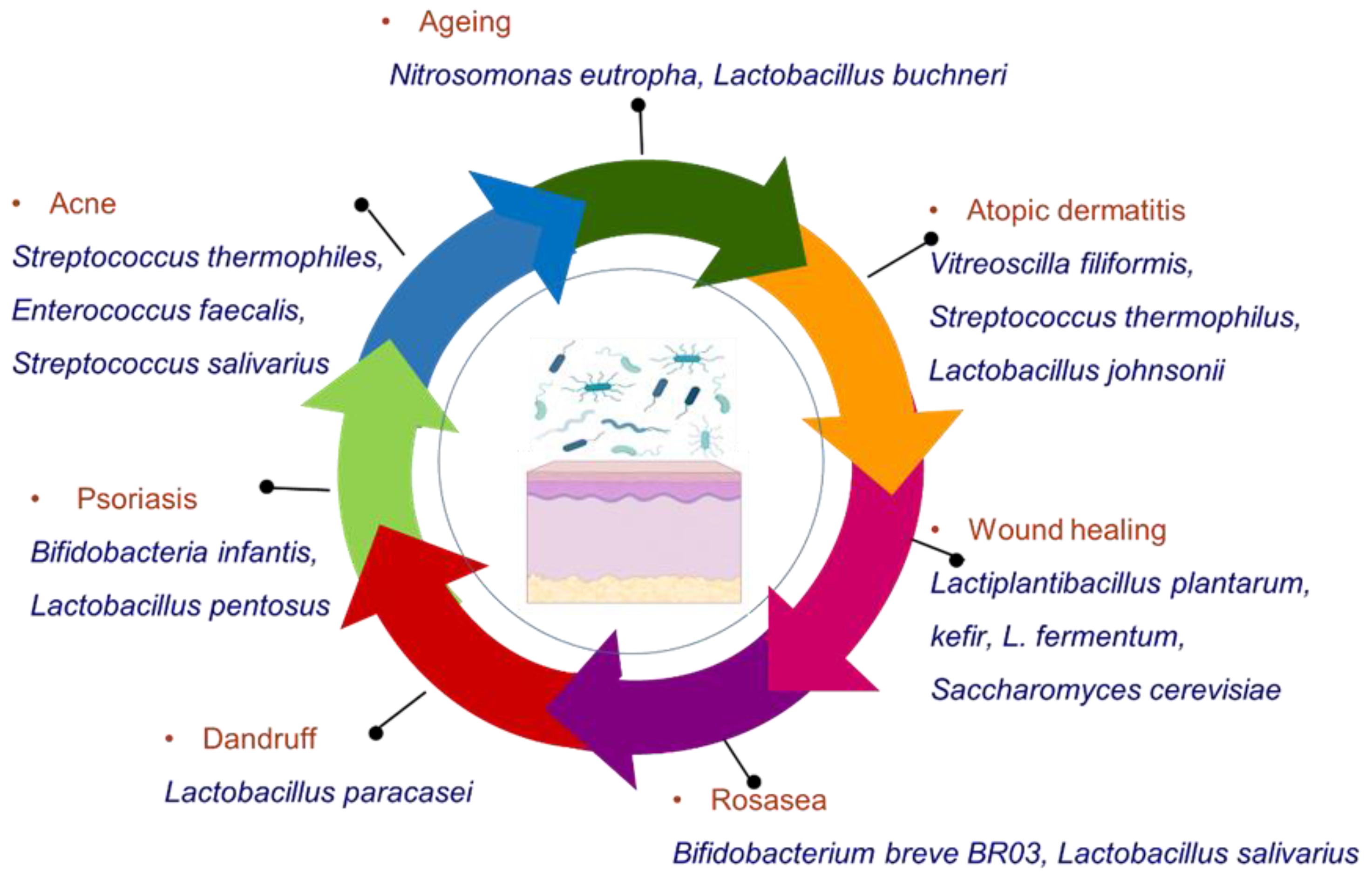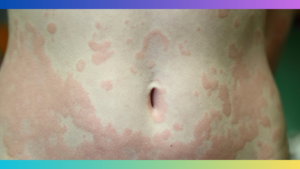Physical Address
304 North Cardinal St.
Dorchester Center, MA 02124

Atopic eczema is caused by a combination of genetic and environmental factors. It can be treated through a combination of lifestyle changes, medication, and skincare routines tailored to individual needs.
Atopic eczema, a common skin condition, is caused by a combination of genetic and environmental factors. A family history of allergies or asthma, exposure to certain irritants or allergens, and a dysfunctional immune system are potential causes. The condition manifests as dry, itchy, and inflamed skin, often exacerbated by triggers such as stress, weather changes, or certain foods.
While there is no cure for atopic eczema, it can be effectively managed through various treatment options. These include lifestyle changes like avoiding irritants and implementing good skincare practices, using moisturizers and prescribed medicated creams, and taking oral medications or immunosuppressants to alleviate symptoms. Developing an individualized treatment plan in consultation with a healthcare professional is essential for effectively managing and reducing the impact of atopic eczema.
Atopic eczema, also known as atopic dermatitis, is a common chronic skin condition that affects millions of people worldwide. It is characterized by dry, itchy, and inflamed skin, which can lead to discomfort and psychological distress. Understanding the causes and treatment options for this condition is crucial for proper management and relief from symptoms.
Atopic eczema is a type of eczema that primarily affects individuals with a genetic predisposition to allergies. It is an inflammatory skin condition that often starts in childhood but can persist into adulthood. Atopic eczema is believed to occur due to a combination of genetic, environmental, and immune system factors.
Atopic eczema is a widespread condition, with approximately 15-20% of children and 1-3% of adults affected worldwide. Its prevalence has been increasing over the past few decades, indicating the need for more attention and research on this condition.
The impact of atopic eczema goes beyond physical discomfort. It can significantly affect a person’s quality of life, causing sleep disturbances, irritability, and reduced productivity. The constant itchiness and visible skin rashes may also lead to social and emotional challenges, affecting self-esteem and confidence.
To address these challenges, it is essential to identify and understand the causes of atopic eczema and explore appropriate treatment options that can provide relief.

Credit: www.aarp.org
Understanding the causes of atopic eczema is vital in managing and treating this chronic condition effectively. Atopic eczema, commonly known as eczema, is a skin condition characterized by inflamed, dry, itchy, and sensitive skin. While the exact cause of atopic eczema remains unknown, various factors, including genetic and environmental triggers, are known to play a significant role in its development. In this article, we will explore these causes in detail.
Research suggests that genetics play a key role in the development of atopic eczema. If one or both parents have a history of atopic conditions such as eczema, asthma, or hay fever, the risk of a child developing atopic eczema increases. This indicates a strong genetic predisposition to the condition.
Several genes associated with atopic eczema have been identified, with variations in these genes affecting the skin’s ability to provide an effective barrier against irritants. These genetic variations can also impact the immune system’s response to allergens, leading to an increased risk of developing atopic eczema.
In addition to genetic factors, certain environmental triggers can exacerbate or trigger episodes of atopic eczema. These triggers can vary from person to person, but some common ones include:
Identifying and avoiding these triggers can help individuals with atopic eczema manage their condition more effectively. It is important to note that triggers can vary from person to person, so keeping a journal to track potential triggers and discussing them with a healthcare professional can be beneficial.
In conclusion, atopic eczema is a complex condition influenced by genetic factors and environmental triggers. Understanding these causes is the first step towards effective management and treatment. By identifying and minimizing exposure to triggers, individuals with atopic eczema can reduce flare-ups and maintain healthier skin.
Atopic eczema, also known as atopic dermatitis, is a skin condition that affects millions of people worldwide. This chronic condition is characterized by periods of flare-ups and remission, often causing discomfort and frustration for those who suffer from it. Understanding the common symptoms of atopic eczema is crucial in managing the condition effectively. Here are the three main symptoms associated with atopic eczema:
One of the hallmark symptoms of atopic eczema is intense itching, which can be unbearable at times. The affected skin tends to become dry, rough, and scaly, leading to further irritation and a constant urge to scratch. This itching can interfere with daily activities and disturb sleep patterns, causing additional distress to the individual.
In addition to the itching and dryness, atopic eczema often presents with redness and inflammation. The affected skin may appear swollen, sensitive, and warm to the touch. These symptoms are a result of the underlying immune response and heightened sensitivity of the skin. The redness and inflammation can vary in severity, with some individuals experiencing mild symptoms while others may have more pronounced red patches.
In more severe cases of atopic eczema, the skin can become cracked and may even ooze fluid. This is a sign of compromised skin barrier function, which allows irritants and bacteria to enter the skin more easily. The cracked and oozing skin is not only painful but also increases the risk of infection, making proper care and treatment essential.
While these three symptoms are the most commonly observed with atopic eczema, it’s important to note that each individual may experience the condition differently. Some may primarily experience itching, while others may have severe inflammation. With the right treatment and management strategies, individuals with atopic eczema can find relief and improve their quality of life.
Atopic eczema, also known as atopic dermatitis, is a chronic skin condition that can cause intense itching and discomfort. While there is no known cure for atopic eczema, there are various treatment options available to help manage the symptoms and provide relief. These treatment options primarily focus on reducing inflammation, relieving itching, and restoring the skin’s moisture barrier. Let’s take a closer look at some of the most common treatment options for atopic eczema:
Topical corticosteroids are widely used in the treatment of atopic eczema due to their effectiveness in reducing inflammation and alleviating symptoms. They are available in different strengths and can be applied directly to the affected areas of the skin. These medications work by suppressing the immune response and reducing redness, swelling, and itching. It is important to follow the prescribed dosage and duration of treatment as long-term use of corticosteroids can lead to side effects such as thinning of the skin.
Moisturizers and emollients play a crucial role in the daily management of atopic eczema. These products help to restore and maintain the skin’s natural moisture levels, preventing dryness and reducing itchiness. Look for moisturizers and emollients that are specifically formulated for sensitive skin and free from fragrances and harsh chemicals. Applying moisturizers immediately after bathing and throughout the day can help lock in moisture and soothe the skin. Additionally, using emollients as soap substitutes can help prevent further drying of the skin.
Antihistamines are commonly used to relieve itching caused by allergies, including atopic eczema. They work by blocking the effects of histamine, a chemical produced by the body in response to allergens. By reducing histamine’s activity, antihistamines can help alleviate itching and promote better sleep. It is important to note that antihistamines may cause drowsiness, so it is recommended to take them in the evening or as directed by your healthcare provider.
Overall, a combination of these treatment options can help manage the symptoms of atopic eczema and improve the quality of life for those affected by this skin condition. However, it is important to consult with a healthcare professional to determine the most suitable treatment plan for your specific needs.
When it comes to managing the symptoms of atopic eczema, making certain lifestyle changes and utilizing home remedies can play a significant role. Adopting healthy habits and modifying one’s daily routine can help alleviate itching, redness, and flare-ups caused by atopic eczema. In this article, we will explore three effective ways to manage atopic eczema through lifestyle changes and home remedies. These include avoiding triggers, managing stress, and making dietary modifications. By incorporating these strategies into your daily life, you can take proactive steps towards finding relief from atopic eczema symptoms.
Atopic eczema is often triggered by various external factors. Identifying and avoiding these triggers can help in preventing or minimizing flare-ups. Some common triggers include:
| Trigger | Description |
|---|---|
| Harsh Chemicals | Avoid using products that contain harsh chemicals, fragrances, or dyes, as they can irritate the skin and trigger eczema symptoms. |
| Temperature Changes | Extreme temperatures and sudden changes in temperature can cause flare-ups. Keep your skin well-protected in cold weather and avoid excessive sweating in hot weather. |
Additionally, it is important to pay attention to individual triggers that may vary from person to person. By identifying and avoiding your personal triggers, you can reduce the frequency and severity of eczema symptoms.
Stress is a common trigger for various skin conditions, including atopic eczema. Incorporating stress management techniques into your daily routine can help prevent flare-ups. Here are some effective stress management strategies:
By managing stress effectively, you can minimize the impact it has on your atopic eczema symptoms and overall well-being.
Your diet can also play a role in managing atopic eczema. While there is no specific “eczema diet,” making certain dietary modifications can help reduce inflammation and improve overall skin health. Consider the following:
It’s important to remember that dietary modifications may vary from person to person, so it’s essential to listen to your body and determine what works best for you.

Credit: www.clinikally.com

Credit: www.mdpi.com
Atopic eczema is mainly caused by a combination of genetic and environmental factors. Genetic predisposition and a dysfunctional skin barrier play a role, along with triggers like allergens, irritants, stress, and certain weather conditions. It is important to manage and avoid triggers for effective control of atopic eczema symptoms.
The best treatment for atopic eczema includes moisturizing regularly, avoiding triggers, using topical corticosteroids or calcineurin inhibitors, and taking antihistamines for itching. In severe cases, oral medications like immunosuppressants may be prescribed. It’s important to consult with a dermatologist for a personalized treatment plan.
The root cause of eczema is still not fully understood, but it is thought to be a combination of genetics, a malfunction in the immune system, and environmental triggers.
Triggers for atopic dermatitis include allergens, such as pollen and pets, irritants like soaps and detergents, stress, dry weather, and certain foods.
To recap, atopic eczema is a common skin condition that affects many individuals. Understanding the causes, such as genetics and environmental triggers, is crucial in managing and treating the condition effectively. From diligently following skincare routines to seeking medical advice, there are various treatment options available.
With the right approach and proper care, individuals with atopic eczema can find relief and improve their quality of life. Remember, consistency and patience are key in managing this condition and reducing its impact on daily life.

